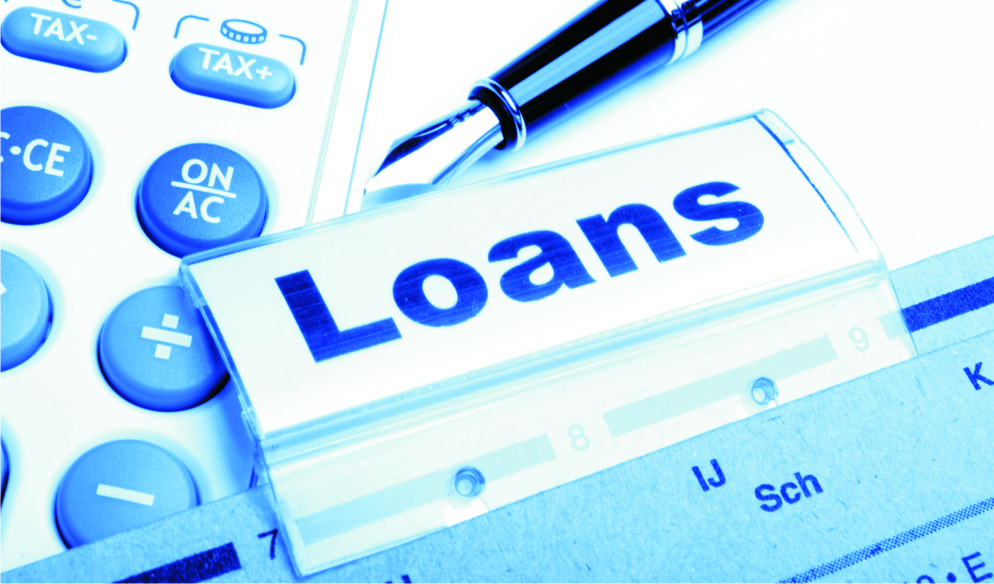Business
Bank Loans Hit N26.41trn In 2019

A significant increase on credit offered by banks to the private sector has been recorded as bank loan rose from N22.94 trillion in January 2019 to N26.41 trillion as of November 2019.
This is an increase of 15% (N3.47 trillion), according to analysis of data published by the Central Bank of Nigeria (CBN), recently.
In recent years, the CBN has continued to compel banks to boost their credit to the real sector of the economy.
Analysis of data published by the apex bank revealed that the loans increased by N3.46 trillion in 2019 , between January and November, 2019.
According to the report, at the end of November 2019, the total net domestic credit in the Nigerian economy rose from N28.65 trillion in January to N35.51 trillion. This means that the net domestic credit in the economy rose by N6.86 trillion or 23.9%.
Out of the total N35.51 trillion net credit in the domestic economy, credit to private sector rose to N26.4 trillion, while credit to government also rose to N9.10 trillion.
This shows that credit to private sector constitutes 74%, while credit to government constitutes 26% of the total net domestic credit.
– Advertisement –
During the year, credit to private sector hits the highest in December 2019, while credit to the government rose to the highest in October.
A closer look at the report shows that credit to government dropped by N1.35 trillion between October and December 2019.
Across the sectors, as at the end of September 2019, the oil and gas sector recorded the biggest gross domestic loan estimated at N4.50 trillion, followed by manufacturing N2.56 trillion and Government N1.34 trillion.
In 2019, the CBN increased the LDR for Deposit Money Banks (DMBs) twice from 55% to 60%, and later to 65%. In December 2019, several media reports revealed the plans of the CBN to increase the LDR to 70% in 2020.
According to the CBN, the major reason for the newly revised LDR was the noticeable “growth in the level of the industry gross credit”.
There were media reports last year that banks have continued to lower their lending and deposit rates as they struggled to comply with the apex bank’s December 31, 2019 deadline.
Already, criticisms have trailed the current 65% LDR ratio, as experts argue that it might increase the level of non-performing loans in the economy. For instance, the International Monetary Fund (IMF) recently disclosed that the balance sheets of banks would be weak due to the LDR’s directive from the CBN.
In an earlier report, the CBN stated that three banks failed to meet the 30% minimum liquidity ratio requirement of the apex bank.
With the 30% banks’ liquidity ratio, it means there is a limit the CBN can push banks to lend money by raising the LDR.
A look into the value of the Non-Performing Loans (NPL) across sectors showed that NPL in the agriculture, construction, and education among others hit N143.76 billion as at the end of September 2019.
Business
NCDMB, Dangote Refinery Unveil JTC On Deepening Local Content
Business
Food Security: NDDC Pays Counterpart Fund For LIFE-ND Project
Business
Replace Nipa Palms With Mangroove In Ogoni, Group Urges FG, HYPREP
-
Rivers5 days ago
HOS Tasks Rural Dwellers On RAAMP … As Project Sensitization Team Visit Degema, AKULGA
-

 Politics5 days ago
Politics5 days agoTinubu’s Contribution To Buhari’s Presidency Marginal – Ex-SGF
-
Opinion5 days ago
Is Nigeria Democratic Nation?
-

 News5 days ago
News5 days agoRSG Tasks Rural Dwellers On RAAMP …As Sensitization Team Visits Akulga, Degema, Three Others
-

 News5 days ago
News5 days ago2027: I Stand With Southern Presidency -Ortom
-
Politics5 days ago
Lagos LG Polls: Police Restrict Movement, Tightens Security
-

 Politics5 days ago
Politics5 days agoReps Constitution Review Committee Holds Zonal Hearing For Rivers, C’River, Akwa Ibom In Calabar
-
Opinion5 days ago
Checking Herdsmen Rampage

